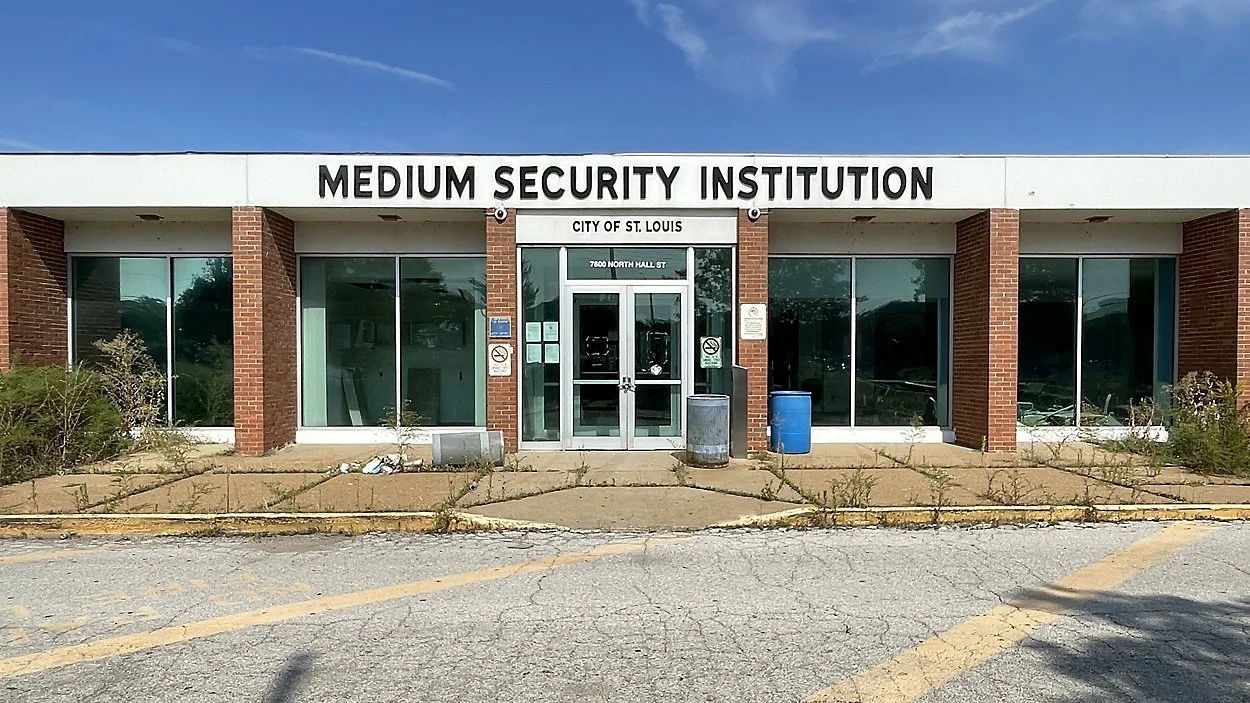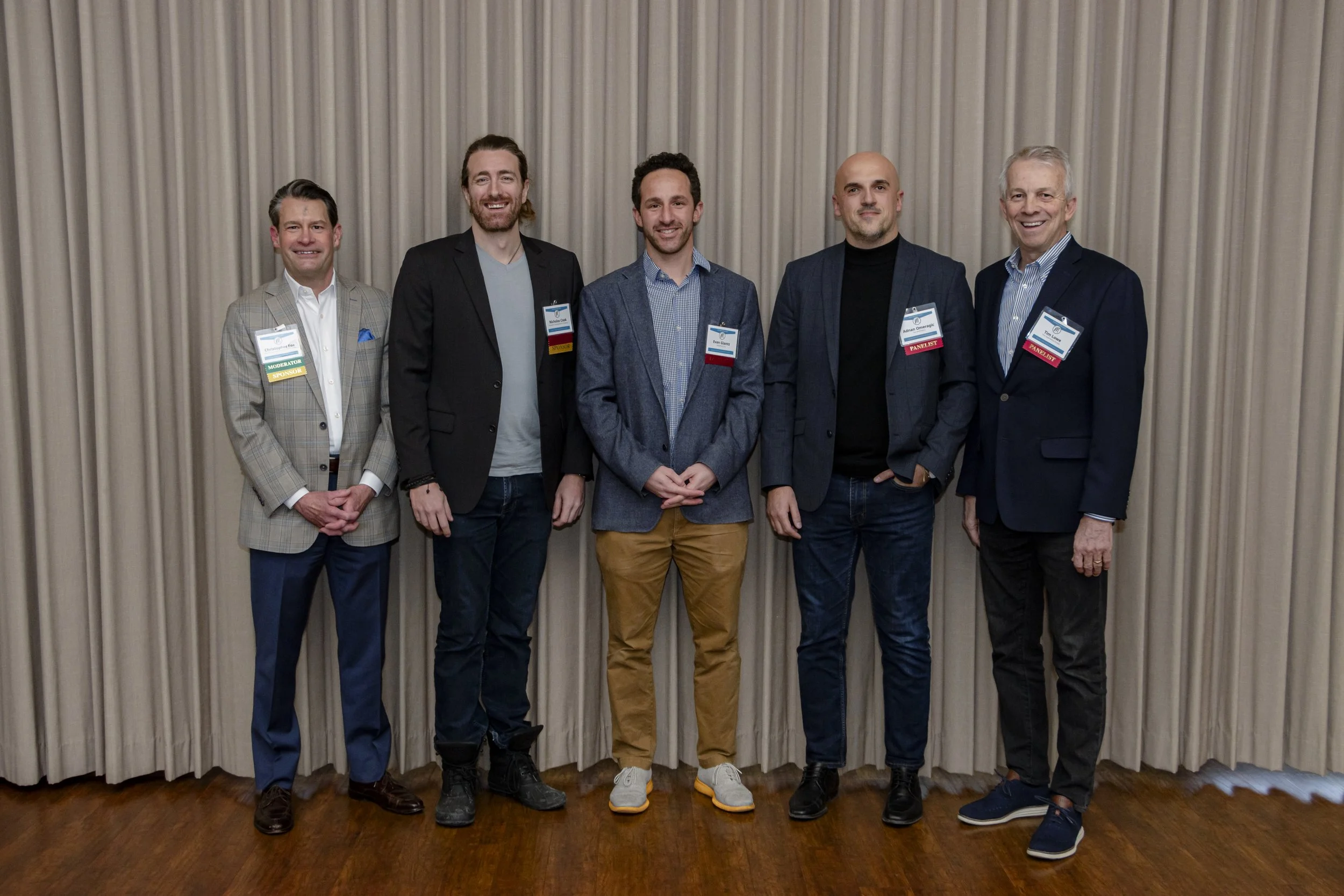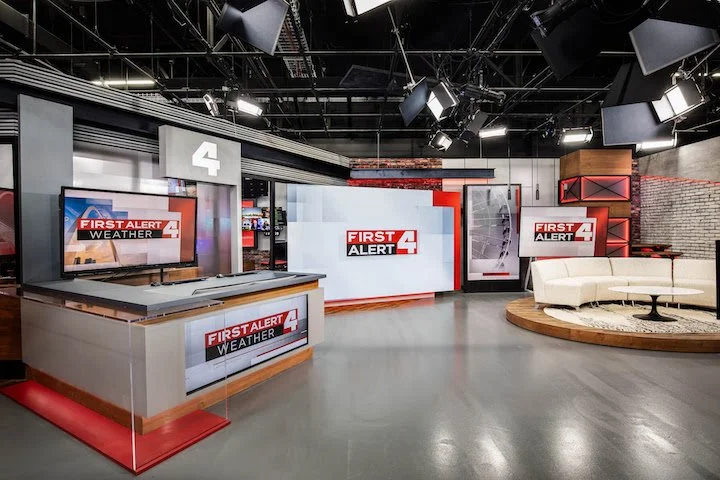Keystone Construction Company partnered with Partners By Design. Cole & Associates, Barrett and Woodyard & Associates. NAI DESCO was the real estate broker for the purchase of the existing building and two-acre lot. Feature image courtesy of Keystone Construction Company.
Auditorium renovations complete at WUSM
Construction is complete on a project to renovate two underutilized auditoriums and vacant space at Washington University School of Medicine (WUSM) in St. Louis into a Training and Testing Center that will support the medical school's new mission and active learning curriculum.
Cori Auditorium and Erlanger Auditorium, which were both underutilized due to their age and outdated design for current teaching methods, are located on the first floor of the school's McDonald Science Building, designed in 1960. Named for the distinguished Nobel Prize-winning WUSM faculty Joseph Erlanger and Carl and Gerty Cori, the auditoriums still functioned as lecture halls before the renovations.
In addition to the two auditoriums' reconfiguration, KWK Architects designed a testing center for medical education in the building's vacant space after relocating the admissions office to the North Building on campus and the student services location to Becker Library. The ground-floor access and central location made it a prime location for the medical school's new Training and Testing Center.
"The university's teaching pedagogy has shifted from a stand-and-deliver approach of the past to a more collaborative, interactive teaching method, as evident in the design renovations for the vacant space and two auditoriums," said KWK Architects principal Eric Neuner.
KWK designed the vacant space into an 85-seat testing room for medical students, which could also be used as seminar and lecture space for all departments. KWK acoustically engineered the area to eliminate sounds from the corridor and adjacent auditoriums. The interior was passively reinforced with built-in reflectors and diffusive shapes to help strengthen speech. The space also provides multiple video screens for lecture functions and splitting the room up into workgroups as needed.
To create fully accessible and flexible active learning classrooms in the auditoriums, infilling the existing slopes and reconfiguring the room shapes was required. Structurally engineered, cold-formed framing supports were installed with a lightweight concrete topping to provide the floor infill. The interstitial space was lined with insulation to help reduce sound transmission during construction and final use.
"This had to be done carefully since the basement below the spaces housed existing laboratories which were operational throughout the construction process," said KWK project manager Bob Buckman.
Cori Auditorium, the larger of the two auditoriums, takes advantage of existing windows to connect the occupants to the exterior. Two new windows were installed in Erlanger Auditorium to give the interior a connection to the outdoor courtyard.
"What was once a dark, antiquated auditorium is now an open, well-lit space both naturally and artificially. The renovated spaces are now ready to serve the medical school for the next 50 years," said Neuner.
Tables and chairs on casters were specified for each new classroom (138 seats in Cori and 105 seats in Erlanger) to provide flexibility in configuration. Motorized shades and dimmable lighting were also selected for multi-use functionality in each space. The Medical School's logo was added as a wall graphic to each classroom to reinforce its branding.
AVI Systems of St. Louis provided the design for the center's new AV systems, which include a 3 ft x 3 ft video wall interconnected to 96-inch screens placed throughout each classroom. The education component is supported by active sound reinforcement and built-in cameras for online learning.
"Screens were placed in careful planning with the furniture to ensure good sightlines with writable wall surfaces. Each smaller breakout area can share their screens with the video wall for interactive learning," said Buckman.
The project team also included SSC Engineering, Bell Electrical, C&R Mechanical, Dynamic Controls and Engineered Fire Protection. The general contractor on the project was BSI Constructors and Interface Construction.
In 2015, Washington University School of Medicine hired KWK Architects to develop a phase one-campus plan https://outlook.wustl.edu/building-connections/.
Since the master plan's completion in 2015, KWK has worked on over 40 design and study projects on the School of Medicine Campus. These include projects outlined in the master plan and additional enabling projects that have helped support campus growth and recruitment activities.
“The projects just completed by KWK were the final phase of the 2015 Phase One Education Renovation Plan. We are excited to see the full plan come to fruition and are eager for the campus to use and experience these exciting spaces,” said Melissa Rockwell Hopkins, assistant vice chancellor of operations facilities with the School of Medicine.
For more information about KWK Architects' university master planning expertise, visit www.kwkarchitects.com/markets/details/master-planning.
Bayer YMCA completes $2.5 million in renovations
Bayer YMCA has completed $2.5 million in renovations to update and expand services at its facility, located on 5555 Page Blvd. in North St. Louis.
The improvements are a part of the Gateway Region YMCA’s strategic plan and capital development initiative supported by a $1.5 million gift from Bayer and a separate $1 million anonymous donor gift.
KAI Design provided architectural design, project management and MEP/FP engineering on the project and worked in concert with the organization’s program manager and architectural consultant, GRO Development, to meet the YMCA’s design expectations for the renovation. PARIC served as the general contractor on the project.
“The renovations to the 19,000-SF space did not include any expansion of the building's actual footprint, but instead KAI took the existing underutilized space to create higher-performing spaces to better meet the needs of the community, such as enlarging lobby spaces, creating new fitness areas, updating finishes, increasing the number of group exercise rooms, adding a family changing room and improving accessibility,” said KAI Senior Project Manager Joel Kerschen, AIA, CSI.
“We have updated the existing space for a more modern look and use. The facility was built almost forty years ago, with its last major update twenty years ago. The new design puts an emphasis on positive spaces for teen and child activities and community interaction,” Kerschen said.
The Bayer YMCA renovations included:
Expanded Early Childhood Education Center (ECEC). The ECEC will provide a safe and nurturing environment for children 6 weeks through 5 years old in a state licensed facility.
Expanded health and wellness services. An expanded fitness area and new fitness programs will allow more individuals to take part in the Y's Blood Pressure Self-Monitoring, Diabetes Prevention and other chronic disease prevention programs to meet growing community needs.
New Bayer Teen Tech Center. A state-of-the-art technology center will offer a variety of STEAM activities, including robotics, coding classes and gaming, STEM camps and family STEM nights. This space and the new mezzanine above it will also allow for increased enrollment in the Learning Labs program, which allows students who are underperforming in reading or math to improve.
New teen area with a mezzanine for esports.
New STEM Focused Community Kitchen. A modernized STEM Focused Community Kitchen and expanded community garden will provide more education and food outreach in a community recognized as a "food desert" and in need of healthy eating resources.
New family changing room. These facilities will provide a safe environment for families with young children.
“We are extremely proud of our newly renovated space for many reasons. Additional programming allows us to continue to serve the North St. Louis community and the many challenges that we face,” said Bayer YMCA executive director Marcus Wilson.
A grand re-opening was held on Nov. 10, 2020 to celebrate and showcase the improvements.
New office HQ with a view for Arcturis
Renovations are underway on new office headquarters for Arcturis, a St. Louis-based national design firm, who plans to move to the 13th floor of the former Peabody Plaza building, which now serves as a focal point of the new Gateway Plaza at 701 Market St. in downtown St. Louis.
Arcturis partnered with Tarlton Corp. to serve as construction manager of the 11,500-SF, build-out project - adding to the award-winning portfolio of the two, women-owned businesses.
The dynamic duo previously collaborated on the build-out of the new Spire corporate headquarters which earned LEED Gold for Commercial Interiors certification from the U.S. Green Building Council and was recognized with an Edwin F. Guth Award for interior lighting design from the Illuminating Engineering Society.
Slated for completion by the end of this year, the renovations and tenant build-out include the demolition of existing office space; installation of new partitions; high-end, industrial-look finishes and MEPFP design-build enhancements.
An impressive glass-wall storefront, fabricated and installed by Missouri Valley Glass, welcomes employees and visitors into the office suite. The storefront features one-half-inch-thick clear tempered glass sections situated within a span that is 9 feet tall and 22 feet long. The entry doors are flanked by two wide sections on each side, with sleek, brushed stainless hardware and trim completing the modern design.
In addition, the office space incorporates a wellness area featuring a lounge and cafeteria, as well as a “light laboratory” that Arcturis design teams will use for fixture testing and to simulate different light conditions in project designs for clients.
The Tarlton project team includes Joe Scarfino, project director; Diane Grimsley, senior project manager; Beth Barton, superintendent; and Joe Carr, cost engineer.
St. Joseph's Academy gains $7.5 million in campus upgrades
St. Joseph’s Academy has completed more than 23,000 SF of campus enhancements at a cost of $7.5 million, including the new Weidert Center for Integrated Science and the Sisters of St. Joseph Humanities Hall.
The private, all-girls, Roman Catholic, college preparatory high school is located in Frontenac, Mo.
The new Weidert Center features 12,000 SF of renovated and upgraded science, engineering and technology lecture and laboratory spaces on the third floor of the main school building. It is named for Barbara Weidert, a 1947 graduate, whose estate made a $3.5 million gift to the school in 2018.
“The Weidert Center for Integrated Science offers a large and innovative new educational environment with state-of-the-art features and technology designed to help prepare our young women for STEM-related careers,” said Regina Mooney, president of St. Joseph’s Academy.
“Now we can provide enhanced academic experiences and opportunities for the growing number of our students interested in engineering and related fields. We are very grateful for the overwhelming generosity of Barbara Weidert and many other dedicated donors of the SJA community for their help in making these 21st-century spaces a reality for our girls,” Mooney said.
The $3.5 million gift from the estate of Barbara Weidert is the largest single gift in St. Joseph’s Academy’s ’s 180-year history. This unrestricted gift also jump-started the school’s ongoing Expect More Capital Campaign for Every Girl supporting long-range plans to renovate and upgrade HVAC, windows and other instructional areas including a new Visual Arts Center and Studios on the school’s second floor which has been re-named The Sisters of St. Joseph Humanities Hall.
A new Campus Ministry Center on the first floor puts St. Joseph’s Academy at the forefront of collaborative faith-filled learning. These projects include another 11,000 SF of renovation.
The school’s Expect More Capital Campaign has provided the construction funding for these campus enhancements and is also expanding scholarship support for qualified students of all backgrounds. These enhancements are part of the school’s plans to continue providing quality Catholic education and prepare young women with 21st century skills.
“These forward-looking investments prepare today’s students for tomorrow’s careers,” said Craig Hannick, St. Joseph’s Academy Board of Directors chair.
“Reimagined and upgraded facilities advance our holistic education, preparing values-driven leaders, just as our founders, the Sisters of St. Joseph, envisioned 180 years ago,” Hannick said.
Construction of the new STEM education facility and visual arts center began in 2019 and was completed in time for the beginning of the Fall 2020 semester by project architect, Hastings & Chivetta and BSI Constructors, the general contractor.
To view a short video highlighting the new facilities, click here: https://www.youtube.com/watch?v=xDmwNVoq4HI&feature=youtu.be
Phase two renovations begin on Congregation Temple Israel
Congregation Temple Israel, a reform synagogue located at 1 Rabbi Alvan D Rubin Dr. in St. Louis, Mo., has started phase two of their three-phase renovation.
“This project is going to be really transformational. It’s a complete 40,000 SF interior remodel of the education building that will be ready just in time for school to start in late August,” said Barry Spiegelglass, co-owner of Spiegelglass Construction, the general contractor on the project.
Phase one renovations, which were completed in 2017, included $1.28 million of safety, security, accessibility and energy efficiency improvements; including updated light fixtures in the parking lot, security upgrades, pool playground repair, main office refresh, enhancement to the fire suppression system, installation of a new waterline and a complete renovation of the existing restrooms.
Phase two renovations include approximately $3.4 million of improvements including a new entrance canopy, new ADA accessible ramp, exterior paint, relocating and renovating administrative suite and creating two prototype classrooms.
The renovations will bring the building up to date with the latest in energy efficiency, sensory sensitivity and technology-based learning.
“It’s essential that we have flexible classroom and play spaces. Our facility must be reimagined and built to reflect the educational and social needs of children in the modern world,” said Leslie Wolf, director of family education for Congregation Temple Israel.
The $2 miilion third phase will include renovations of the remainder of the ECC classrooms and the K-12 classrooms as well as an addition of a new infant suite. Phase three will occur when funds are secured and could be as soon as 2021.
“There are so many families that have fond memories in this building that now see their children or their grandchildren attend. Our goal is to highlight the best aspects of the existing structure while enhancing the interior learning environment to make an impact for generations to come,” said Sue Pruchnicki, principal at Bond Architects, who designed phases two and three.
Other partners on the project include AALCO Wrecking Company, Inc., Sheet Metal Contractors, Inc., Akron Electric, Inc., Budget Glass and Flooring Systems Inc.
“It will look like an entirely different building and we can’t wait to see the reactions from the kids and their parents when they see it for the first time,” said Spiegelglass.






